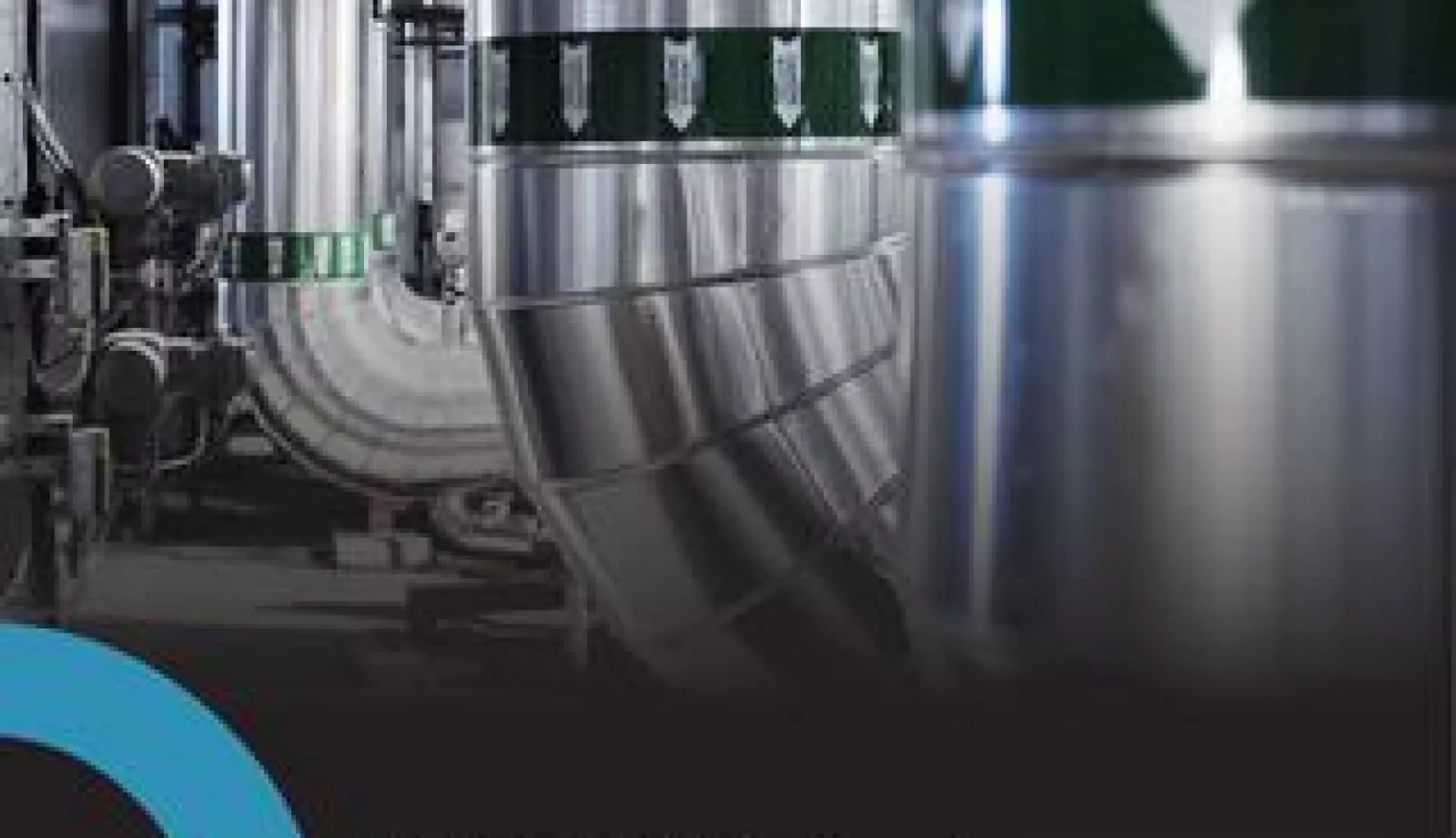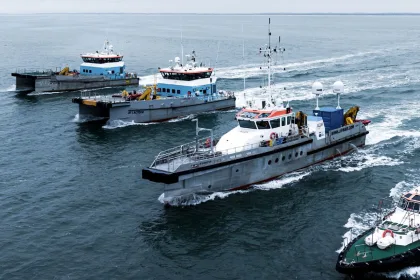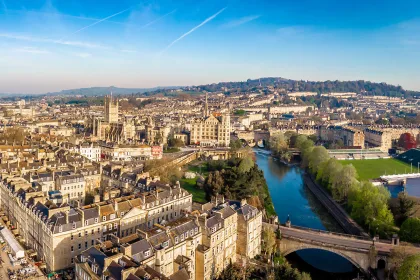Having listened to what customers want, Kraftringen is totally committed to its mission of generating and distributing carbon neutral energy across various regions in Sweden.
STRIVING FOR LONG-TERM SUSTAINABILITY
Today, we live in a world where natural resources are running out. What’s more, fossil fuels are damaging the environment beyond repair, causing climate change and global warming along the way. For these reasons, an increasing number of people are pursuing a more eco-friendly existence.
This trend has not gone unnoticed by Swedish energy group Kraftringen, who firmly believe the future will be both sustainable and carbon neutral. Thanks to recent organisational changes and a customer-focused strategy, Kraftringen’s ambitious aspirations look like they will become a reality.
OWNERSHIP AND ORGANISATION
Kraftringen is owned by four municipalities in the region of Skåne; Lund, Eslöv, Hörby and Lomma. Although the company was founded almost a century ago, its recent history is particularly interesting, mainly due to the changing face of Sweden’s energy sector. Before the market deregulation in 1996, energy companies were usually owned by the municipalities responsible for local areas and regions. But as the market was completely deregulated, international players started to enter the industry followed by a period of consolidation and buy-ups. Today there are 170 energy groups in Sweden and Kraftringen is around the fifth largest. However, as CEO Sylvia Michel reveals, the four municipalities that owned Kraftringen benefitted from keeping their ownership.
“We would like to highlight how wise their decision was,” says Ms Michel. “With ownership comes the right to steer a company. Our influential board consists of elected politicians with a mutual vision that Kraftringen should break new ground and drive development of new energy solutions for a sustainable society. An energy company can be an extremely potent instrument in the hands of somebody using power in the right way. This means you can manage a whole municipality and region’s production, and usage of energy into a smart consumption and sustainable business solution. The relationship between the board and the group’s management is based on good relations, trust and a set of clear targets.”
Kraftringen takes pride in being trusted to deliver according to the board’s vision and to serve society for the better. A democratic mix of political factions may well rule the municipalities, but with Kraftringen at the helm, everyone cooperates in a harmonic way, setting aside differences to show the rest of Sweden and indeed the world how an energy group can work alongside local government for the greater good.
Kraftringen started a huge internal journey of change around two years ago as a response to changes within the industry, legislations and market demands. Previously known as Lunds Energikoncernen, the company used to consist of 17 smaller brands, which had several organisational and infrastructure problems. After these were merged into one under the name Kraftringen, the entire company changed its outlook, and went from a local player to a regional player. “The change of the brand was seen externally but also internally; we changed our vision, business ideas and the whole organisation in order to best reflect this, which was a huge transformation,” notes Ms Michel.
ADDED VALUE FOR A UNIQUE SELLING POINT
When asked about the company’s unique selling point, Ms Michel reveals that Kraftringen is not primarily driven to generate profit: “Indeed, most companies have a minimum level of profit that should be generated or a kickback on all investments, but we need sustainable and sound economic development. That means we should generate a surplus in order to be able to invest in all our planned projects, partnerships and activities to develop sustainable energy solutions for the future.”
Kraftringen may well be a company that is managed and run effectively, but success should not be based on numbers, rather measured by its ability to be consistent in its unique business principles and service to customers.
Traditionally, the energy sector has suffered from a low level of public trust and has focused on the engineering and technical side of things rather than tending to the wants and needs of customers. But as part of its ever-changing vision, Kraftringen sees itself as a more customer orientated, knowledge-based company, which is taking responsibility for future energy requirements.
However, Ms Michel acknowledges that all companies in the industry face similar problems. Along with low profit margins per customer, energy is an everyday commodity that people take for granted. So to gain a competitive advantage, Kraftringen must attract new customers with better products and added value, which can be achieved by simply listening to customer feedback. “We have started working on a methodology that monitors the customers’ shifting demands and needs,” notes Ms Michel. As well as being able to adapt to these requests, Ms Michel believes that Kraftringen’s sustainable approach also delivers added value to its customers which will differentiate Krafringen from its competitors.
SUSTAINABLE CONSCIOUS
When it comes to sustainability, Kraftringen takes on the leading role in driving the necessary changes. However the whole energy industry plays an important role in the transition to a climate neutral and sustainable society.
Sustainability is primarily associated with environmental initiatives, but for Kraftringen there are two additional and equally important aspects that need to be balanced. The first is economical sustainability – returning a sound and healthy profit for greater investment. The second is social sustainability – developing a creative and friendly workplace where employees are recognised as a valuable asset. “This, together with our environmental perspectives, is how we interpret the word sustainability and we need to weave it into all our efforts in the transition to a sustainable society,” adds Ms Michel.
Since 2011, Kraftringen has developed and produced an annual sustainability report, which the organisation works on all year round. The report monitors key figures and developments as well as customer and partner needs in order to reach climate-orientated goals together.
PROJECTS AND INVESTMENTS
Even though Kraftringen’s annual turnover is around SEK 3 billion (approx. €320 million), it has reinvested the same amount of money back into the business via various projects over the past five years. Looking forward, it will continue at an investment pace of SEK 300 million per year (approx. €32 million). “These are ambitious numbers when you look at our annual turnover and profit,” cites Ms Michel.
Kraftringen’s biggest ongoing investment is to support its journey and vision of becoming climate neutral. This is because the local government of Skåne wants the whole region to be completely free of fossil fuels by 2020, which Ms Michel describes as a “very challenging and ambitious target”. However, Kraftringen has developed a declaration of intent in conjunction with the regional government, which is the first of its kind in Sweden, in the hope of achieving this challenging objective.
Regardless of whether the objective is attained, Ms Michel says that Kraftringen will have given a “tremendous effort of strength to pull together towards a mutual goal”. While this will undoubtedly cost money, the owners are supporting the company’s dreams of sustainability.
As part of its declaration, Kraftringen is working hard on developing sustainable energy solutions, such as making sure the products it burns at power plants are recyclable bio fuels and not coal, natural gas or oil. What’s more, a regional district heating system, which consists of one power plant delivering boiling hot water via underground pipelines to entire cities, eradicates the need for household boilers and increases overall efficiency. “This is one of our major products,” notes Ms Michel. “We develop and own district heating plants, the grid and pipelines.”
Last year, Kraftringen witnessed the grand opening of its single biggest investment ever, which was a new SEK 2 billion (approx. €212 million), biofuel CHP (Combined Heating and Power plant, where both heat and power is produced from boiling water and steam). The entire project took 10 years to complete, from eight initial years of permission, planning and development to two years of construction. Along with the delivery of raw materials via railroad, this new plant is saving more than 200,000 tonnes of CO2 per annum compared to the previous facility, something which Ms Michel believes can help the entire world, not just Sweden: “This is where thinking globally, acting locally really makes sense because these carbon savings are not isolated to this region,” she notes. “This is something that Germany, England, France and the rest of the world will benefit from.”
WHAT LIES AHEAD?
Even though local and national governments are supporting Kraftringen’s vision of producing carbon neutral power, the energy sector is a heavily regulated industry with lots of political laws that must be adhered to. But what is more worrying is the risk of changes within the regulations as governments come and go. Ms Michel considers this a problem for every energy player, as there is little unity between different national factions and changing political agendas. However, Kraftringen boasts a strong management board consisting of elected politicians, which puts the company in a better and stronger position than others.
Since Kraftringen’s internal journey of change, Ms Michel says that the biggest driving forces behind success so far have been specific goals, a clear company structure, a forward-thinking vision and new business ideas, all of which emulate a focus on sustainability. “We have clear targets for the organisation to rally around,” she says. “When we are talking about sustainable goals, the population is concerned and wants to develop a better society. This really does move you as a person. It would be more difficult to rally around a figure of profit.”
But despite Kraftringen’s progress, Ms Michel believes that the company still has a long way to go, especially when you consider the upcoming 2020 fossil fuel free target. She notes that there is no time to relax, as once one objective is complete, another will take its place.
“We don’t consider ourselves as successful yet. The journey we are on still continues and we need to keep focused so that we don’t fall back into old structures,” Ms Michel reveals. “We still have much to do and the ambition to keep moving forward. This is part of our business model.”
However one thing looks set to continue for years to come for Kraftringen – a customer focussed approach that thinks global, but acts local. “Through all of our activities and investments, we will make a difference and attract the right competencies and customers from our competitors.
“We do not make houses warmer and lights do not shine more brightly. Our product is the same as our competitors’, but we want to make a difference through our unique value-added sustainability strategy,” Ms Michel signs off.






























